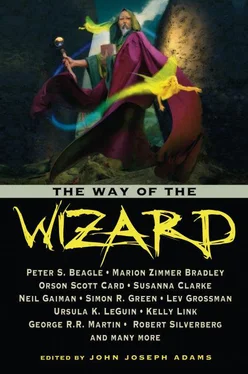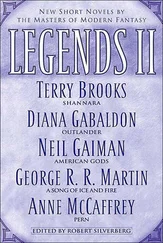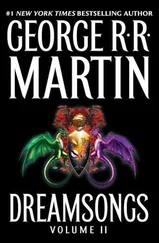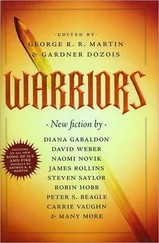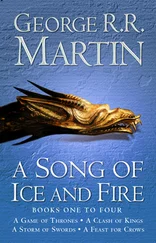“What must I do?” Halsa said. “I’ve never been a wizard’s servant before.”
“Didn’t your wizard tell you?” Essa said. “What did he tell you to do?”
Halsa blew out an irritated breath. “I asked what he needed, but he said nothing. I think he was hard of hearing.”
Essa laughed long and hard, exactly like a horse, Halsa thought. There were three or four other children, now, watching them. They were all laughing at Halsa. “Admit it,” Essa said. “You didn’t talk to the wizard.”
“So?” Halsa said. “I knocked, but no one answered. So obviously he’s hard of hearing.”
“Of course,” a boy said.
“Or maybe the wizard is shy,” said another boy. He had green eyes like Bonti and Mik. “Or asleep. Wizards like to take naps.”
Everyone was laughing again.
“Stop making fun of me,” Halsa said. She tried to look fierce and dangerous. Onion and her brothers would have quailed. “Tell me what my duties are. What does a wizard’s servant do?”
Someone said, “You carry things up the stairs. Food. Firewood. Kaffa, when Tolcet brings it back from the market. Wizards like unusual things. Old things. So you go out in the marsh and look for things.”
“Things?” Halsa said.
“Glass bottles,” Essa said. “Petrified imps. Strange things, things out of the ordinary. Or ordinary things like plants or stones or animals or anything that feels right. Do you know what I mean?”
“No,” Halsa said, but she did know. Some things felt more magic-soaked than other things. Her father had found an arrowhead in his field. He’d put it aside to take to the schoolmaster, but that night while everyone was sleeping, Halsa had wrapped it in a rag and taken it back to the field and buried it. Bonti was blamed. Sometimes Halsa wondered if that was what had brought the soldiers to kill her father, the malicious, evil luck of that arrowhead. But you couldn’t blame a whole war on one arrowhead.
“Here,” a boy said. “Go and catch fish if you’re too stupid to know magic when you see it. Have you ever caught fish?”
Halsa took the fishing pole. “Take that path,” Essa said. “The muddiest one. And stay on it. There’s a pier out that way where the fishing is good.”
When Halsa looked back at the wizard’s towers, she thought she saw Onion looking down at her, out of a high window. But that was ridiculous. It was only a bird.
The train was so crowded that some passengers gave up and went and sat on top of the cars. Vendors sold umbrellas to keep the sun off. Onion’s aunt had found two seats, and she and Onion sat with one twin on each lap. Two rich women sat across from them. You could tell they were rich because their shoes were green leather. They held filmy pink handkerchiefs like embroidered rose petals up to their rabbity noses. Bonti looked at them from under his eyelashes. Bonti was a terrible flirt.
Onion had never been on a train before. He could smell the furnace room of the train, rich with coal and magic. Passengers stumbled up and down the aisles, drinking and laughing as if they were at a festival. Men and women stood beside the train windows, sticking their heads in. They shouted messages. A woman leaning against the seats fell against Onion and Mik when someone shoved past her. “Pardon, sweet,” she said, and smiled brilliantly. Her teeth were studded with gemstones. She was wearing at least four silk dresses, one on top of the other. A man across the aisle coughed wetly. There was a bandage wrapped around his throat, stained with red. Babies were crying.
“I hear they’ll reach Perfil in three days or less,” a man in the next row said.
“The King’s men won’t sack Perfil,” said his companion. “They’re coming to defend it.”
“The King is mad,” the man said. “God has told him all men are his enemies. He hasn’t paid his army in two years. When they rebel, he just conscripts another army and sends them off to fight the first one. We’re safer leaving.”
“Oooh,” a woman said, somewhere behind Onion. “At last we’re off. Isn’t this fun! What a pleasant outing!”
Onion tried to think of the marshes of Perfil, of the wizards. But Halsa was suddenly there on the train, instead. Y ou have to tell them, she said.
Tell them what? Onion asked her, although he knew. When the train was in the mountains, there would be an explosion. There would be soldiers, riding down at the train. No one would reach Qual. Nobody will believe me, he said.
You should tell them anyway, Halsa said.
Onion’s legs were falling asleep. He shifted Mik. Why do you care? he said. You hate everyone.
I don’t! Halsa said. But she did. She hated her mother. Her mother had watched her husband die, and done nothing. Halsa had been screaming and her mother slapped her across the face. She hated the twins because they weren’t like her, they didn’t see things the way Halsa had to. Because they were little and they got tired and it had been so much work keeping them safe. Halsa had hated Onion, too, because he was like her. Because he’d been afraid of Halsa, and because the day he’d come to live with her family, she’d known that one day she would be like him, alone and without a family. Magic was bad luck, people like Onion and Halsa were bad luck. The only person who’d ever looked at Halsa and really seen her, really known her, had been Onion’s mother. Onion’s mother was kind and good and she’d known she was going to die. Take care of my son, she’d said to Halsa’s mother and father, but she’d been looking at Halsa when she said it. But Onion would have to take care of himself. Halsa would make him.
Tell them, Halsa said. There was a fish jerking on her line. She ignored it. Tell them, tell them, tell them. She and Onion were in the marsh and on the train at the same time. Everything smelled like coal and salt and ferment. Onion ignored her the way she was ignoring the fish. He sat and dangled his feet in the water, even though he wasn’t really there.
Halsa caught five fish. She cleaned them and wrapped them in leaves and brought them back to the cooking fire. She also brought back the greeny-copper key that had caught on her fishing line. “I found this,” she said to Tolcet.
“Ah,” Tolcet said. “May I see it?” It looked even smaller and more ordinary in Tolcet’s hand.
“Burd,” Tolcet said. “Where is the box you found, the one we couldn’t open?”
The boy with green eyes got up and disappeared into one of the towers. He came out after a few minutes and gave Tolcet a metal box no bigger than a pickle jar. The key fit. Tolcet unlocked it, although it seemed to Halsa that she ought to have been the one to unlock it, not Tolcet.
“A doll,” Halsa said, disappointed. But it was a strange-looking doll. It was carved out of a greasy black wood and when Tolcet turned it over, it had no back, only two fronts, so it was always looking backwards and forwards at the same time.
“What do you think, Burd?” Tolcet said.
Burd shrugged. “It’s not mine.”
“It’s yours,” Tolcet said to Halsa. “Take it up the stairs and give it to your wizard. And refill the bucket with fresh water and bring some dinner, too. Did you think to take up lunch?”
“No,” Halsa said. She hadn’t had any lunch herself. She cooked the fish along with some greens Tolcet gave her, and ate two. The other three fish and the rest of the greens she carried up to the top of the stairs in the tower. She had to stop to rest twice, there were so many stairs this time. The door was still closed and the bucket on the top step was empty. She thought that maybe all the water had leaked away, slowly. But she left the fish and she went and drew more water and carried the bucket back up.
Читать дальше
